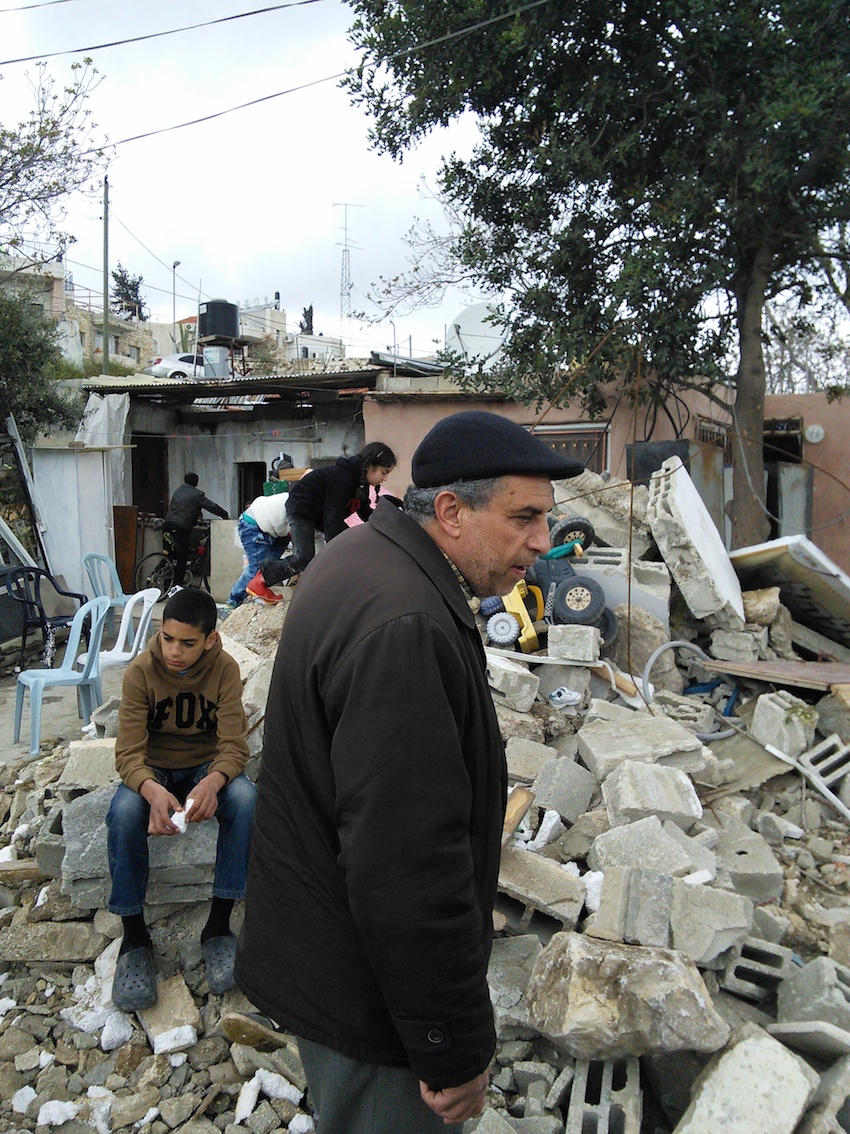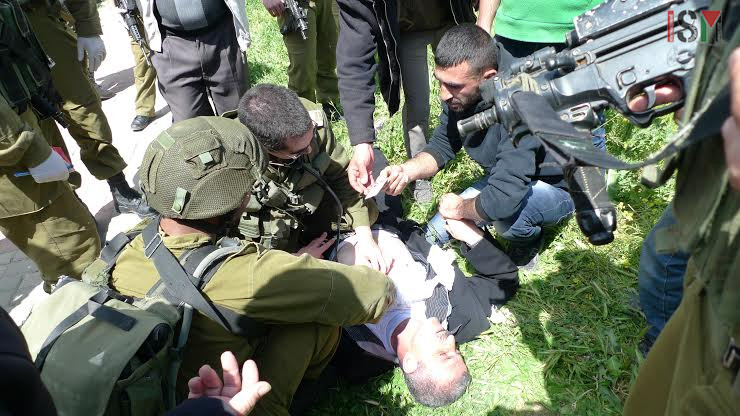Category: Press Releases
-
Four people shot in the first 5 minutes at Nabi Saleh protest
3rd April 2015 | International Solidarity Movement, Ramallah Team | Nabi Saleh, Occupied Palestine The weekly Friday protest in Nabi Saleh was met with extreme violence by Israeli Occupation Forces. Four people were shot in the first five minutes of the protest. One man and one woman were shot and wounded by snipers using .22 caliber live…
-
Home demolition in Jerusalem: “They want our land. We need help to protect it.”
1st April 2015 | Jerusalem, Occupied Palestine Nureddin Amro and his brother Sharif Amro and their families were awakened at 5:30 am by over a hundred Israeli soldiers who came to demolish their home in the Wadi Al-Joz neighborhood of occupied East Jerusalem on Tuesday, March 31, 2015. Both men are blind. The brothers live with their…
-
Peaceful tree planting attacked by settlers and soldiers, two hospitalised and one arrested
1st April 2015 | International Solidarity Movement, Khalil Team | Hebron, Occupied Palestine On March 31st around 40 Palestinian children and adults gathered in Hebron near Qurtuba school, a Palestinian school in the H2 neighbourhood of Tel Rumeida, to plant trees in commemoration of Palestine’s Land Day. Israeli extremist settlers from the illegal settlements in Al-Khalil (Hebron) attacked…



